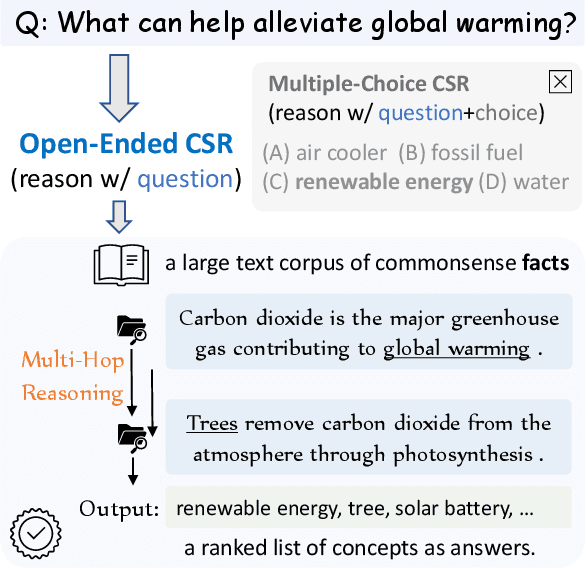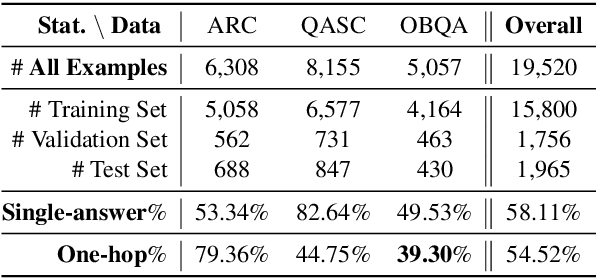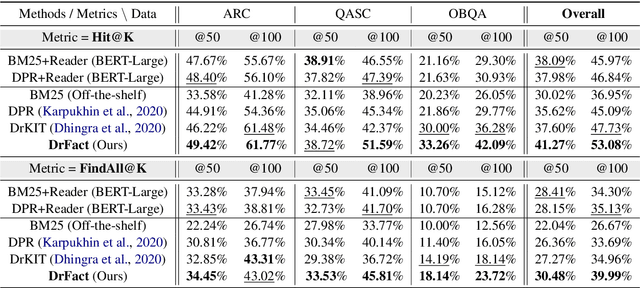Differentiable Open-Ended Commonsense Reasoning
Paper and Code
Oct 24, 2020



Current commonsense reasoning research mainly focuses on developing models that use commonsense knowledge to answer multiple-choice questions. However, systems designed to answer multiple-choice questions may not be useful in applications that do not provide a small list of possible candidate answers to choose from. As a step towards making commonsense reasoning research more realistic, we propose to study open-ended commonsense reasoning (OpenCSR) -- the task of answering a commonsense question without any pre-defined choices, using as a resource only a corpus of commonsense facts written in natural language. The task is challenging due to a much larger decision space, and because many commonsense questions require multi-hop reasoning. We propose an efficient differentiable model for multi-hop reasoning over knowledge facts, named DrFact. We evaluate our approach on a collection of re-formatted, open-ended versions of popular tests targeting commonsense reasoning, and show that our approach outperforms strong baseline methods by a large margin.
 Add to Chrome
Add to Chrome Add to Firefox
Add to Firefox Add to Edge
Add to Edge